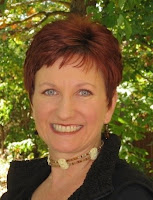Perhaps to Dream
by Dennis S. Martin
Do I want?
Will I go?
Could it be?
Might I know?
In my sleep,
In my mind
Thoughts abandon
Fleeting time.
Rounding corners
To arrive in
Places where
Sweet hope survives.
Softly sliding
Into slumber
Where no fearful
Giants lumber.
Lying by her
Gentle stream
In solitude…
Perhaps to dream.
Website:
http://www.iwritesome.com/
Lulu Storefront:
http://www.lulu.com/dsmartin
Plays:
http://sites.google.com/site/playsbydennissmartin/
From Snap to Clink
By John D Wilkinson
The distance from snap to clink is not very far
You could walk there from here
Snap woke me up about 11 o’clock
To wrench my cell phone away and chuck it to the weeds
Clink showed up later to tell me how it is…
Thank the gods my kids are still sleeping
Snap told her story while I sat on my hands
And the bruises from the kicks still pained me
Clink walked me out to his used paddy wagon
Then cuffed me in front of my neighbor’s house
Snap went to sleep on the California King
With a leather, sleigh-bed frame
Clink drove me down on a two-minute ride
To my one room windowless apartment
The distance from snap to clink is not very far
You could walk there from here
With the Ancients
by John D. Wilkinson
Moonrise at the ‘Weep
is a beautiful sight
The light rolls down the mountainside
and fills up the night
I pull out my stones
to bask in the glow
Praying for guidance
from those in the know
Up with the dawn
I circle the cliffs
With the still morning’s calm
and sweet Juniper whiffs
A red squirrel has scaled
the Old castle wall
To listen for hawks
or maybe a squall
But only mother crow
has come to alight
Drying her feathers
preparing for flight
A young male shows off
his dips and his dives
His circular spans
tracing multiple lives
I see them now together
way up on the breeze
Alone but forever
criss-crossing with ease
Yearning to touch them
to climb up the wind
I run to the Hopi
and find my new end…
Hot Sauce
By John Wilkinson
A nation of habituation
Enlightened by diode
Mother’s and Father’s with children and dogs
Helmets and leashes, electric and otherwise
Everyone has ruptured the bank
Nobody cares
Plowmen run for the fields and miners delve deeper
I see few windmills and solar cells
Shoppers to market with nu-clear plastic
Not hardly
Shuffling forward in clown shoes
Stalking about in heeled boots
Spring promptly fools Winter
Winter cheats Spring Her mountaintops
Oblivious robins taunt the gelid wind
Rugged ruffled breasts and white ringed tails
Catharsis reigns with a cob-webbed scepter
The heartless bow
Old ways thrash about in their shrinking pools
Teeth gnashing at the rapidly drying air
The selfishness of business and parenthood
Addiction and arrogance
Compassion and understanding
Square off on the threshing floors
It is what it is
The balloon-heads of state
All filled with jelly
Expound and rant about the lifting of the veils
It is all too clear the rift is insurmountable
Only stiff wind can erode this false edifice
These ridiculous Doric spindles of marble and gilt
Bullet-proof limos creep along patriotic streets
Hold on folks, hold on
In the ‘cradle’ infants wail
About what
Ten thousand years could not tell the story
Flower sap and sticky hearts
And the blaring boxes go on
Here, there and everywhere
Catching us up
Sweeping out the corners
Old friends reconnect and listen intently
Pretense begins to fade
Means and ends lose their luster
Against the rays of the Sun
Birds chirp and soar
Trees spin their loving branches to the limitless sky
No one asks why
Breath flows in deep and exhales come long and low
The moose are in the local marsh
Up to their kneecaps in the muck
Children point with great excitement
Some fear, some gape in awe
To the salt mines we ramble
Thanking gods and stars
For our enslavement
At least this
Her lithe arm
Draped across my belly
Her essence in my nostrils
Upon my tongue
Like Azorean mist I’ve never tasted
Flavors I long to know
Have always known
Just this
John D Wilkinson II has been living in the Rocky Mountains of Colorado for thirty-three years and has called Steamboat Springs home for nearly nine of those. His third book, ‘Breakfast Ketchup with Hot Sauce Too.’ has been well-received locally, nationally and overseas. His work is best described as Bukowski meets Silverstein meets Whitman, in a greasy diner with bad service, for a morning palette cleanse. Copies of the book are available at both Epilogue Book Co. (970) 879-2665 and 'OTBP; (970) 879-6830.
Frozen
by Dennis S Martin
Could I but capture this blissful moment
Frozen in time, I would.
Were you to bait my soul to surrender,
It would be well understood.
Seeking caresses of your midnight flower
Leaves me in ecstasy’s wake
Taunting my senses to new heights of freedom,
Challenging to elevate.
I was but callow, shallow, emotionless
Prior to the being of you.
Fighting off daylight, shrinking to midnight,
Living in deep shades of blue.
You are my gulf stream, killing off icebergs,
Leading me to pristine shore.
All that my frozen heart needed to thaw.
Filled…
Never wanting for more.
Website:
http://www.iwritesome.com/
Lulu Storefront:
http://www.lulu.com/dsmartin
Plays:
http://sites.google.com/site/playsbydennissmartin/


